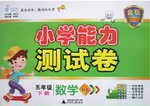题目内容
John,a famous musician, took his priceless zither(齐特琴) ,and played it in the crowded subway station. The music from the zither was delicately streaming 1the whole station. However, during the one-hour play only six or seven people truly 2 the charming music. A three-year-old kid was so 3 by the music that he forgot everything around. John only got 52 US dollars for his work that day.
4in normal days,when John is about to hold a concert, the ticket can be sold for more than 100 dollars and it is extremely 5 to buy a ticket even at such a high price. There?fore,later, many 6 in the station that day felt deeply regretful for not 7 the famous musician and missing such a valuable but 8 music feast.
I have a very busy friend who totally 9 after knowing that his wife came down with a deadly illness. He cooked by himself for the family and took a walk with his wife every day. But his wife still did not 10 to conquer the illness and passed away after three months. After that,he often sighed miserably that 11 his past busy life,he had missed a lot of beautiful time with his wife. But now,it is impossible to 12 it.
Actually, I also missed something 13 before. The 14 we missed those things is simple:we had thought that we could still own them 15 .
Yet tomorrow is actually by no means 16 . There was a famous Buddhist monk saying that in many people's 17 ,they had only done two things:waiting and regretting. The result is that they were always too late to 18 what they had. We would often claim to do some- thing when we grow up,or when we have money or when we become old,etc. However, when we reach the 19 we have expected,we could no longer 20 our wish,because we have lost it by then.
( ) 1.A. above B. before C. throughout D. under
( ) 2.A. appreciated B. heard C. found D. absorbed
( ) 3.A. confused B. attracted C. excited D. stuck
( ) 4.A. Therefore B. However C. Then D. Also
( ) 5.A. convenient B. necessary C. easy D. hard
( ) 6.A. listeners B. viewers C. passers-by D. children
( ) 7.A. greeting B. recognizing C. paying D. contacting
( ) 8.A. common B. meaningful C. cheap D. expensive
( ) 9.A. escaped B. abandoned C. submitted D. changed
( ) 10.A. manage B. want C. decide D. agree
( ) 11.A. as with B. thanks to C. due to D. as for
( ) 12.A. come up with B. look forward to
C. make up for D. look back on
( ) 13.A. difficult B. precious C. present D. delightful
( ) 14.A. reason B. origin C. chance D. result
( ) 15.A. today B. nowadays C. yesterday D. tomorrow
( ) 16.A. comfortable B. easy C. reliable D. charming
( ) 17.A. lives B. works C. plans D. tasks
( ) 18.A. protect B. value C. suggest D. miss
( ) 19.A. condition B. top C. success D. scene
( ) 20.A. say B. understand C. forget D. realize
1— 5 CABBD 6—10 CBCDA
11— 15 CCBAD 16—20 CAB AD
很多人的一生中,只做了 "等待"与"后悔" 两件事,合起来就叫"来不及"。我们老爱说:长大再说,有钱再说,老了再说……可是到了那时候,却什么都不必说了。我们要做的是珍惜现在,不错过生命中的美好事物。
1.C音乐家演奏出的美妙音乐,在整个车站中弥漫。
2.A根据句中的Only six or seven people truely可知,只有六七个人真正地欣赏音乐。
3.B一位三岁小童,听音乐听得如此入神以至于忘记了周围的一切。
4.B在车站一天只收人了 52美元,而在平时的音乐会上,一张门票就要100美元以上。However表示转折关系。
5.D一张票能卖到100美元以上,而且还一票难求,足可见John作为著名的音乐家是十分受欢迎的。
6.C由第一段内容可知,此处指的是在车站的过路人。
7.B当得知那天是著名音乐家在地铁车站演奏时,行人们后悔自己眼拙,没有认出音乐家,从而错过了一场有价值但廉价的音乐盛宴。
8.C
9.D从下文He cooked by himself for the fami?ly and took a walk with his wife every day可
知这位忙碌的朋友得知老婆得了重症,彻头彻尾变了一个人。
10.A从下文passed away after three months可知,他的妻子并没有战胜疾病。
11.C由于自己工作繁忙,他错过了很多与妻子在一起的美好时光。due to表原因。
12.C妻子的病逝,使得他无法弥补这一切。
13.B实际上,作者也在感叹自己曾经错过了很多珍贵的东西。
14.A句中的冒号后面解释了具体的原因。
15.D为什么我们会错过美好的东西,原因很简单,因为我们总认为我们明天还可以拥有它。下文也提PJ Yet tomorrow is actually by no means...
16.C然而,明天绝不是可靠的。
17.A和尚认为许多人在生活中只做两件事情:等待和后悔。
18.B因为总是在等待,结果就是我们总也不能珍惜自己拥有的东西。
19.A根据上一句的内客可知,我们总是想着等长大,有钱了或是年纪大了再去实现自己的愿望。可是当我们真正达到我们所期待的状况时,我们巳无法再去实现梦想,因为我们已经失去了它。
20.D

 小学能力测试卷系列答案
小学能力测试卷系列答案